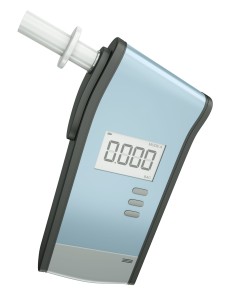
The U.S. Supreme Court agreed to review Minnesota’s implied-consent law, which could lead to drastic changes in the way the DUI process plays out.
Under the current implied-consent law, a person can be charged with a crime if they refuse a warrantless breath test. Warrants are needed to collect evidence in the vast majority of cases, but Minnesota officials have deemed that driving is a privilege, not a right, and you should be subject to criminal penalties if you refuse to take a breath test, even if the police officer doesn’t have a warrant.
As criminal defense attorneys, it’s no surprise that we feel that drivers are unjustly subjected to warrantless tests just because the state feels that driving is a privilege. We’ve argued that if driving is a privilege, what’s to stop them from deciding that home ownership is a privilege? Few would argue that cops should be able to search your home for drugs without a warrant because home ownership is considered a privilege, yet that’s exactly what we’re currently doing during traffic stops. Others argue that this is just another loophole to keep drunks on the road, but that’s not the case at all. You are guaranteed protection against warrantless searches and seizures by the U.S. Constitution, yet we’re penalizing drivers for expressing those guaranteed protections? Something just doesn’t seem right.
Supreme Court Breath Test Ruling
The case, State vs. Bernard, will be led by local attorney Jeff Sheridan and a Washington D.C. law firm. The case centers around William Bernard of Eagan, who refused to take a warrantless breath test near a boat ramp. He was arrested for refusing to submit to a breath test, and a second refusal at the station led to felony charges for refusing to submit to chemical testing.
Sheridan also hopes the U.S. Supreme Court will address a certain loophole in the state’s implied-consent law. Currently a person can face felony charges for refusing to submit to a breath test even if the DUI charge is later dropped or dismissed. Sheridan wants to ensure that citizens who are innocent of DUI aren’t also hit with felony charges.
The U.S. Supreme Court has already ruled that police must get a warrant or permission from the suspect to take a blood or urine sample, so it will be interesting to see how they view breath tests. It’s uncertain when exactly the Supreme Court plans to hear the case, but the ruling could have major impacts on Minnesota and other states with similar implied consent laws.





